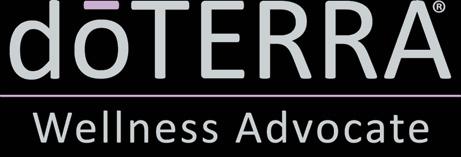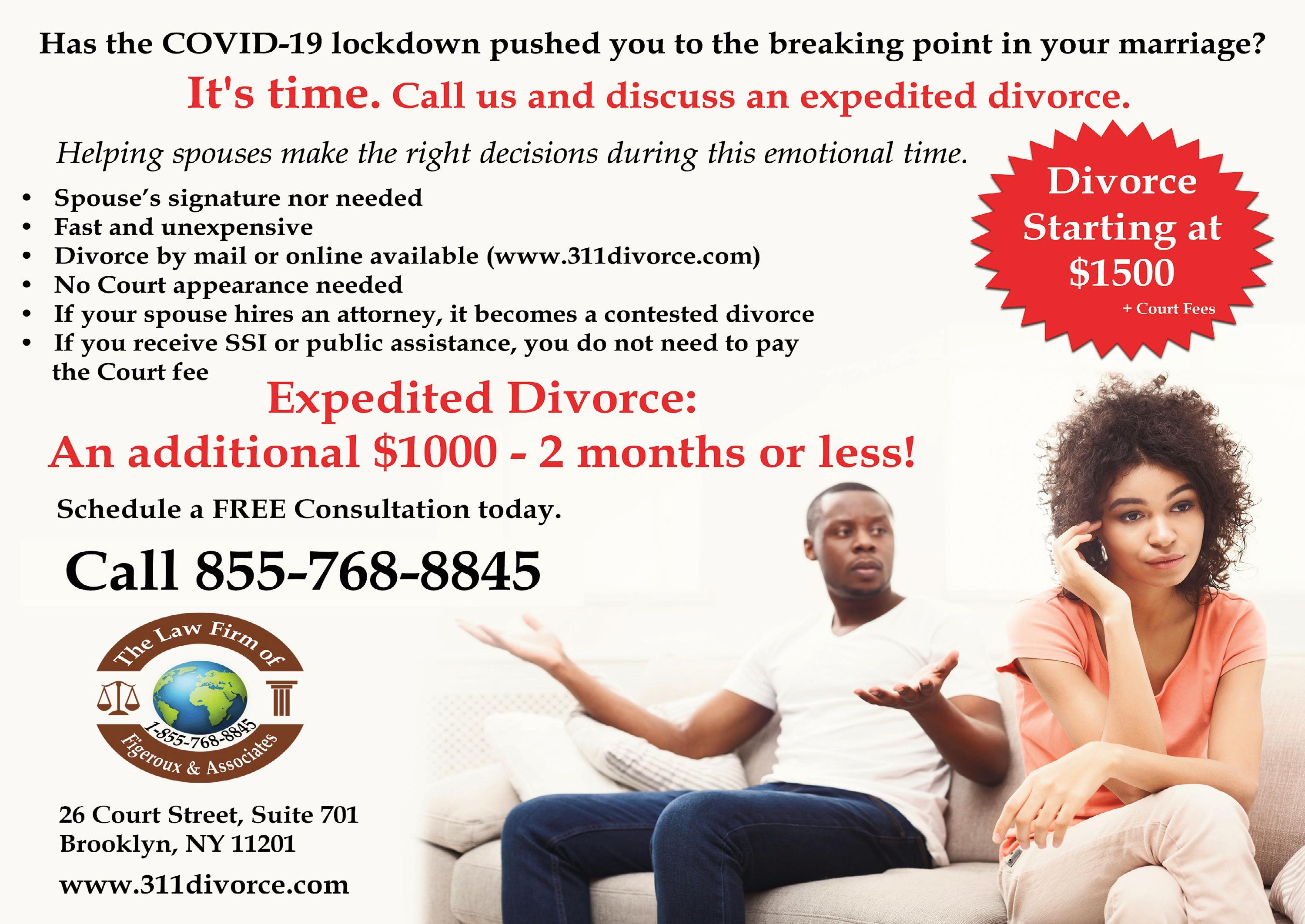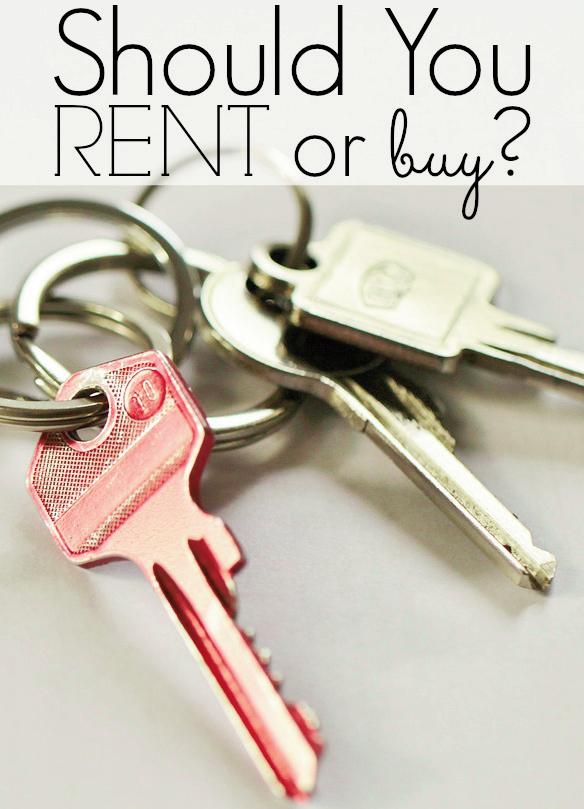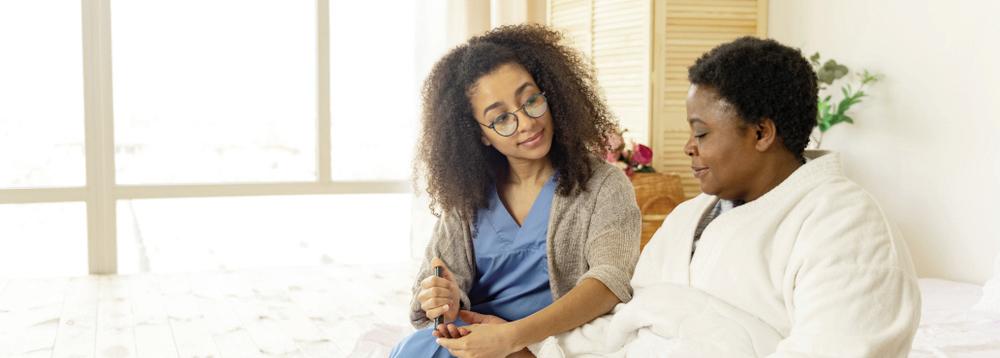
15 minute read
Scoring System Could Predict Stroke in People Hospitalized for COVID-19
BY AMERICAN HEART ASSOCIATION NEWS
Anew scoring system based on a person's medical data may help predict who is at higher risk for having a stroke when hospitalized with COVID-19, preliminary new research shows. The scoring system – which was as effective at predicting stroke risk as computer models – found people with four or more risk factors related to their medical history and condition at the time of hospital admission were 10 times more likely to have a stroke as those with fewer risk factors. The findings, considered preliminary until a full paper is published in a peer-reviewed journal, are being presented this week at the American Stroke Association's International Stroke Conference. Identifying patients with higher stroke risk could help medical professionals "monitor them more closely and provide treatment more quickly," lead study author Dr. Alexander E. Merkler said in a news release. He is an assistant professor of neurology at Weill Cornell Medical College and an assistant attending neurologist at New York-Presbyterian Hospital in New York City. "Future research could focus on specific treatments that may benefit people with COVID-19 who are at higher risk for stroke," he said. The scoring system was developed using the American Heart Association's COVID-19 registry, a nationwide database that includes medical and demographic information about people hospitalized for COVID-19, their treatment and cardiovascular risk factors. As of Dec. 7, the registry included more than 63,000 patient records from 170 registry sites. Researchers analyzed data for 21,420 adults hospitalized for COVID-19 at 122 U.S. health centers for a full year beginning in March 2020. Overall, 1 in 65 hospitalized adults had a stroke. The patients' average age was 61. They identified six factors that helped predict who was at highest risk for stroke: a previous stroke; not having a fever; no history of lung disease; a high white blood cell count; high blood pressure; and elevated systolic blood pressure, which is the top number in a blood pressure reading that measures the force the heart exerts each time it beats. "Of the six factors linked to increased risk of stroke, one was 'no history of pulmonary disease' and another was 'no fever,'" Merkler said. "This seemed a bit surprising because patients with lung disease and those with high fever are at higher risk to develop severe COVID19." Those who had at least four of the six factors were 10 times more likely to have a stroke as those who had fewer risk factors. They got the same results using an artificial intelligence-based computer model to predict the patients' stroke risk. Stroke is the fifth-leading cause of death in the U.S. As the pandemic continues, researchers say evidence is emerging that COVID-19 may increase the risk for stroke and poor outcomes.l
Advertisement
You may be eligible for COVID-19 Treatment
People who have tested positive for COVID-19 may be able to receive outpatient treatment to help symptoms and avoid hospitalization. Treatment works best if you begin it soon after you start feeling symptoms, so get tested right away. Monoclonal antibody treatment is a one-time IV or injection to help fight COVID-19 while your immune system produces its own antibodies. Oral antiviral pills are taken for five days and helps stop the virus and keeps it from replicating, which reduces the amount of virus in your body. There are currently two authorized pills - paxlovid and molunpiravir. Both monoclonal antibody and oral antiviral treatments can reduce your risk of becoming sick from COVID-19 and avoid hospitalization.
COVID-19 treatments are not a substitute for vaccination. COVID-19 vaccination and booster shots remain the best protection against getting severely sick due to COVID-19. If you have COVID-19 symptoms, or if you have tested positive, talk to your doctor, or call 212-COVID19 (212-268-4319).
Here’s to 2022: Pay Yourself First
BY TARSHA GIBBONS
Here are some thoughts on success in a Forbes article from James Cash Penny, the founder of JC Penny, "Though plenty of people want to be successful, only a self-selected few will even come close." I could not agree with this statement more. In other words, if you are willing to buckle down and commit yourself to do the hard work it takes to achieve big goals, you can be one of them. Using fitness as a catalyst is a surefire way to pave your path to success. I have noticed that we tend to have moments of success, but we usually don't live a perpetual life of success. Do you notice that you may be rocking it in one area of life but not so much in others? I have seen this in my own life more than I care to admit. To be completely honest, I have limited my potential success because I stop when I feel something is "good enough." That hurts just to write it. Can we take "good enough" out of our vocabulary? When you become complacent, it translates to, I know it can be better, but I am not willing to go that far, or I don't feel like doing what it is going to take for that result, or I did not prepare appropriately for this to be excellent, so this is going to have to be good enough. Oh, my goodness! Can I share something with you? Just because you don't FEEL like it doesn't mean you shouldn't do it. Your feelings are natural and can be deceiving at times, especially when it requires discomfort. They usually are momentary, and when they go against what you know is logically beneficial, you have to ignore them. You have to push past them. When you move past the point of discomfort, you usually find yourself in a better place. In the same way, you push past your feelings of not wanting to go to work but show up anyway because you have bills to pay. You need that same reasoning when you know you need to go work out or not eat the fried chicken. You are trying to live a long healthy life just like you are trying to have money to enjoy it. Treat your body the same way you treat someone else's business that you show up to daily. The difference is that this paycheck is paid in longer days here on the earth. Live your life by design, not by default. Pay yourself in health and wealth, and success will follow suit. Good health allows you to thrive, not just survive. I am cheering you on, my friends, and if no one told you today, "You are Amazing."l Tarsha Gibbons is the founder of Gibbons Family Fitness. I am a wife, mom, entrepreneur, businesswoman and fitness professional. Check her out:

Website: www.gibbonsfamilyfitness.com FB:
www.facebook.com/GibbonsFamilyFitness Instagram:
www.instagram.com/GibbonsFamilyFitness
Are you looking to get into the health & wellness business?

Contact:


Stacy Young Board Certified Holistic Health Coach Tel: 917-459-8431
Earn extra income... Enjoy perks!
Become a Certified Travel Become a Certified Travel Agent &Destination Specialist Agent &Destination Specialist

WHY BECOME A TRAVEL AGENT?
Travel is an 8.1 trillion dollar industry. Some of that money can be yours!
Attend our 4-week Travel Agent Program. Learn how to:
•Book travel and earn higher travel commissions •Use travel to raise funds for your church, nonprofit, charity, etc •Start and grow a profitable travel business •Use social media to market your business •Become eligible for major tax advantages
For dates and registration, please visit: www.nacc.nyc/travelagent Call 718-722-9217 for assistance.
Cost: $250.00 (Chamber members) $350.00 (non-members)
Fee includes Travel Agent training and your own online travel business and Individual Chamber Membership. Certificates will be given out to those who successfully complete the program. We recommend doing our Small Business Boot Camp.
You can start your travel business with a SSN or an ITIN.
Breaking Up Hurts: Getting Over Your Ex
BY MARY CAMPBELL
Your eyes are red and swollen, and tears are streaming down your cheeks. Your stomach is in knots and your heart feels like it’s been ripped out of your chest and stomped on. Does this sound like you? If so, you’ve probably recently experienced a breakup. Whether you were the dumper or the dumpee, break-ups suck. You often wonder how you’re going to get back to your old self again, or how you’re going to live without your ex. It always seems harder in the beginning because, well, it is. Learning to move on takes time and effort, no matter how down you’re feeling.
Give yourself time to mope around. This doesn’t mean allowing yourself to wallow in a pool of self-pity for months. Set a time limit, say, a week or two. Cry your eyes out. Watch sappy, romantic movies. Eat half a pint of ice cream by yourself. Look at old photographs. Reminisce. Do what you need to do, but once that time limit is up, it’s back to the real world.
Avoid running into your ex. Stop visiting places that she frequents, like her favorite diner or bookstore. Don’t log on to social-networking sites unless you know without a doubt, that you won’t check out her page or “see what she’s up to.” You may see something that you don’t like, which could easily slingshot you back to feeling sorry for yourself. You don’t necessarily have to delete her, just remove her updates from your newsfeed, or stop using the site until you recuperate.

Hang out with your friends. Chances are, while you were wrapped up in your relationship, you neglected your friends. Now, you’re going to need them to help you move on. Make a brunch date, or organize a night out on the town. Your friends will be there to support and guide you, and avoid you from calling your ex if you’ve had one-too-many.
Make time for yourself. After you feel like you can be alone without bursting into tears, take some time off for yourself. Do something that your ex didn’t typically enjoy, like kayaking or hitting up a sushi bar. This helps you pull things back into perspective and realize that you are your own person.
Change your life around. Whether you’re rearranging your furniture, or implementing a new style into your wardrobe, making subtle changes will encourage a new, fresh start. Also, if your ex has items at your house, arrange for a friend to pick them up and give them back. There is no reason you should have to feel the heartache of seeing your ex again, at least not soon after the breakup. Hit the gym. Not only will you look and feel fantastic, but exercising also boosts dopamine production and reduces cortisol (stress-causing hormone) levels in the body.
Pamper yourself. Take a hot bubble bath, give yourself a manicure or a pedicure, or go out for a massage at the spa. It’s all about treating yourself to some much-needed relaxation.
Learn something new. Use your time wisely, or much of it will be spent thinking about your ex. Challenge yourself by taking piano lessons or learning a new language to help keep yourself, and your mind, busy.
Tap back into your sexual side. The end of a relationship may also feel like the end of your confidence. Read a naughty book and indulge in your sexual fantasies. Head out and splurge on some silky undergarments that only you know about. You could also try giving your self-esteem a boost by dressing in a sexy, yet classy ensemble, and hitting the town. Dance with your friends or casually flirt with mates to recharge your sexual energy.
Get a good lawyer. If you are married or living together, with or without kids, you need legal advice. Ask the Lawyer. Call 855-768-8845.
While it is the end of a special time in your life, breaking up does not mean it’s the end of the world. Learning to let go and move on is entirely within reach with patience and a positive mind. l

Midlife Isn’t a Crisis, But Sleep, Stress and Happiness Feel a Little Different after 35 – or Whenever Middle Age Actually Begins
BY SOOMIE LEE, THE CONVERSATION
Fewer than one-fifth of Americans say they actually experienced a midlife crisis. And yet there are still some common misunderstandings people have about midlife. I study midlife, and especially how people in this stage of life experience sleep and stress. In my research, I have also found that midlife brings both opportunities and challenges.
Are we there yet? Exactly when midlife begins is hard to pin down. Compared with other developmental periods – like childhood, adolescence and older adulthood – midlife lasts longer and includes more diverse social roles. There are fewer published studies on midlife than studies on childhood and older adulthood. So researchers still know little about the timing and unique experiences of this stage of life. Midlife may begin at different times for different people. In the 1990s, people generally agreed that midlife begins at age 35. This has shifted toward an older age. Now Americans might say midlife begins at age 44 and ends by 60. An increased life expectancy and medical advances may have contributed to this shift. Today’s adults are living longer and healthier lives than previous generations. Also, the demands of establishing a career while building a family have increased. That’s why some researchers have started referring to the period occurring roughly from age 30 to 45 as “established adulthood,” distinguishing it from midlife as it was previously understood. Chronological age is only one way to define the beginning of midlife. Psychologist Margie Lachman emphasizes looking at certain life transitions and social roles that commonly occur in midlife as a way of coming up with a definition. So many roles, so little time Midlife is a time when individuals occupy the greatest number of social roles. The average U.S. adult in midlife typically has four key roles – paid worker or homemaker; spouse or partner; parent; and adult child. Having multiple roles may provide more opportunities to build resources such as income, self-esteem, relationships and success. But people must also divide their time and energy across these multiple roles. Risk factors for later-life diseases also show up in midlife. Slower metabolism, weight gain and hormonal changes are common. Also, women experience menopause, which involves hot flashes and emotional ups and downs. Men in midlife are more likely than younger men and women to develop sleep apnea. All these factors are closely related to sleep, so it’s no surprise to find poor sleep among midlife adults. Sleeping less

continued on page 19
GREEN CARD SLAVERY?

Don’t put up with ABUSE anymore! Whether married or not, whether your spouse is a U.S. citizen or Green Card Holder, we can get a Green Card for you and your children PLUS a divorce. Call 718-222-3155 now for a FREE consultation!
Party Rentals for All Occasions

lBounce Houses & Slides lFun Food Concessions lGames lPackage Specials lTent, Tables, Chairs &
Other Party Essentials

Call Equity Smart Realty at 888-670-6791 for a FREE consultation.

Caregiver Stress — You're Not Alone

Caring for an older adult can be rewarding. It can also be demanding, difficult, and often stressful. Caregivers may need to be available around the clock to fix meals, provide nursing care, take care of laundry and cleaning, drive to doctors' appointments, and pay bills. Often, family caregivers have to give up paying jobs to make time for these new responsibilities. It may be hard to keep a positive outlook when there's little hope of the older adult's physical and mental condition improving. Over time, the demands and stress of caregiving can take their toll. A caregiver might not even know he or she is being neglectful or abusive. If you are a caregiver, make sure you have time to rest and take care of your needs. Ask a family member or friend to help for a weekend, or even for a few hours. Having time to take care of yourself will help you remain healthy and have patience and energy for caregiving. Churches, synagogues, and other faithbased organizations in your community may have volunteers who can visit and help on a regular basis. Respite care provides a break for caregivers. It can be arranged for just an afternoon or for several days or weeks. Caregiving support groups may also help. Exercise can help with caregiving stress and emotional well-being. l –National Institute on Aging Midlife Isn’t a Crisis/ continued from page 18 than six hours a night, getting poor-quality sleep and other sleep issues are prevalent.
Sleep, stress, happiness Age-related physical changes are not the only threat to sleep, however. The struggle of midlife adults to juggle multiple often incompatible roles also causes stress. Stress has negative consequences on sleep, such as chronic insomnia. What’s worse: Stress can result from poor sleep. So sleeping poorly or being stressed out can create a vicious cycle and cascading health problems. Both sleep and stress affect emotions, so you might expect low levels of happiness in midlife. Research backs this up. Fewer people are happy during midlife than older and younger groups. Yet it is important to note that midlife also involves growth, including peaks in work productivity, better financial decision-making and greater wisdom. Although researchers have been able to identify overall patterns of degraded sleep, increased stress and lower happiness in midlife, experiences vary from person to person. For some people, there may be more growth than decline, or a balance of both. Indeed, some research shows that personal growth is related to well-being during midlife. For now, it is already clear that midlife is a pivotal time that determines the trajectory of aging. That’s why self-care during midlife is especially important, despite the busy schedules brought on by a greater number of roles. It’s hard to overemphasize the value of getting enough sleep and managing stress. Doing these things could help individuals turn a “midlife crisis” into “midlife potential.” l Soomi Lee is an Assistant Professor of Aging Studies, University of South Florida





